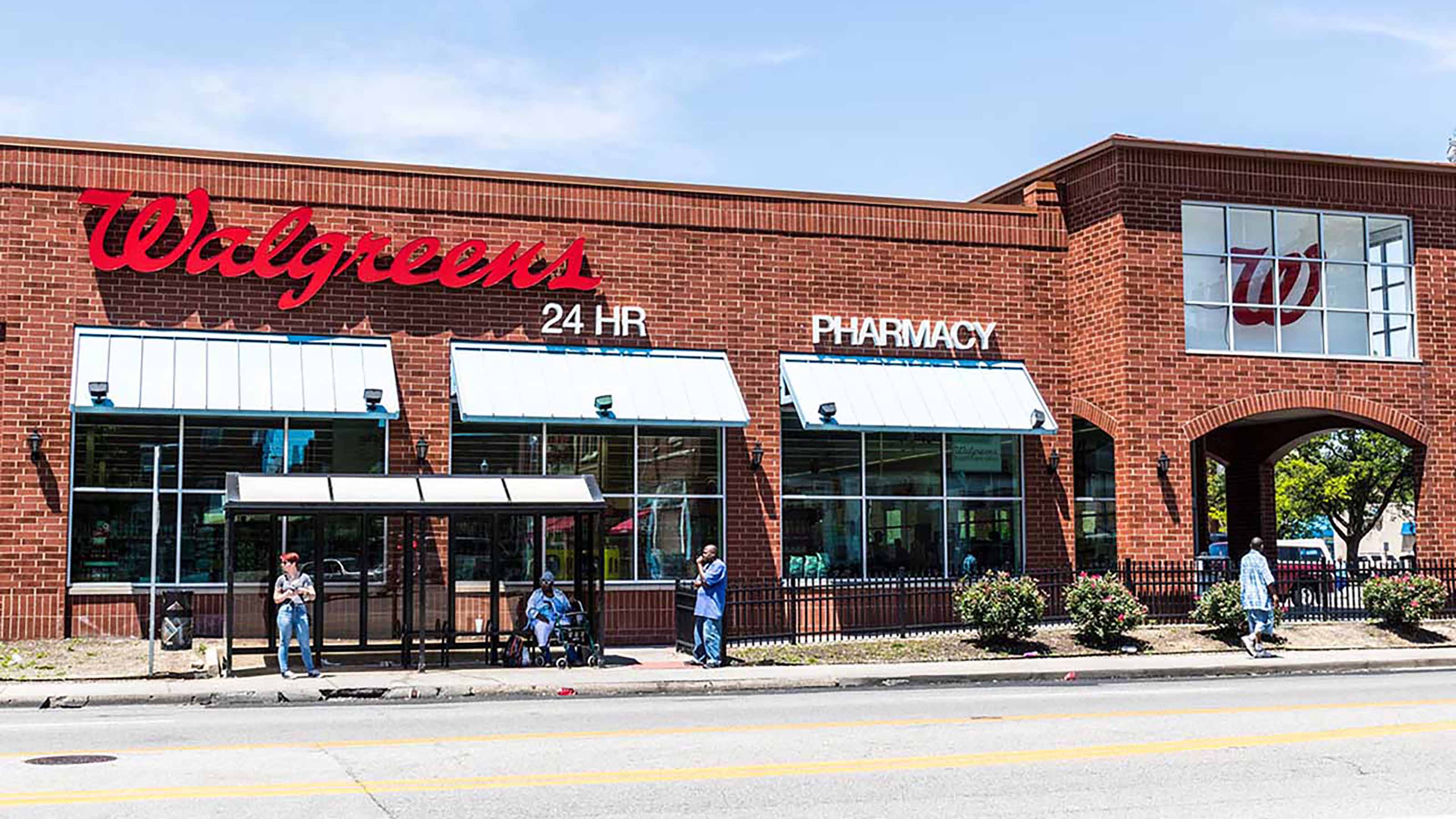
Walgreens Boots Alliance (WBA) stock tumbled Thursday after the pharmacy chain slashed its dividend by almost half. The move puts the company at risk of being removed from the S&P 500 Dividend Aristocrats, an index of S&P 500 companies that have raised their dividends for at least 25 consecutive years.
At its old dividend level, Walgreens was one of the stocks with the highest dividend yields in the S&P 500. But that's about to change.
The company announced a quarterly dividend of 25 cents a share on Thursday, down from the prior quarter's payout of 48 cents a share. The dividend is payable on March 12 to stockholders of record as of February 20, Walgreens said in a news release.
"This action reinforces our goal of increasing cash flow, while freeing up capital to invest in sustainable growth initiatives in our pharmacy and healthcare businesses, which we believe will ultimately improve shareholder value," Walgreen CEO Tim Wentworth said in a statement.
At 48 cents per share per quarter, the forward yield on WBA stock comes to more than 7.5%. However, at the new rate of 25 cents per share per quarter, the forward yield on WBA stock falls to about 4.1%. That's still generous, but well below WBA's own three-year average dividend yield of 5.1%.
Analysts, who already give WBA one of the lowest rankings of all 30 Dow Jones stocks, applauded the decision to take cash earmarked for shareholders and invest it back into the business.
CFRA Research analyst Arun Sundaram, for one, reiterated his Hold recommendation on WBA, noting the company is "on pace toward $1 billion of cost savings this fiscal year, in addition to about $600 million of lower capital expenditures and $500 million in working capital benefits."
Industry analysts have assigned WBA stock a consensus recommendation of Hold for more than five years, according to data from S&P Global Market Intelligence. Of the 18 analysts covering WBA today, two rate it at Strong Buy, one says Buy, 12 have it at Hold, two say Sell and one ranks it at Strong Sell.
With an average target price of $26.67, Wall Street gives WBA stock implied price upside of about 12% in the next 12 months or so. Add in the dividend yield, and WBA's implied total return comes to about 16% in the next year or so.
Walgreens earnings beat estimates
Walgreens also on Thursday posted better-than-expected fiscal first-quarter earnings. On an adjusted basis, which is what industry analysts care about, Walgreens earned 66 cents a share, easily topping Wall Street's average forecast of 62 cents a share. Sales of $36.7 billion also beat analysts' estimate.
"WBA delivered fiscal first quarter results in line with overall expectations, reflecting disciplined execution in a challenging consumer backdrop," said CEO Wentworth in Walgreens' earnings release. "We are evaluating all strategic options to drive sustainable long-term shareholder value, focusing on swift actions to right-size costs and increase cash flow, with a balanced approach to capital allocation priorities."
WBA stock is a long-time market laggard. Over the past 20 years, shares generated a total return (price change plus dividends) of less than 1%. That lags the S&P 500's total return over the same period by about 10 percentage points.
And the performance only gets worse from there. WBA stock delivered negative total returns over the past one-, three-, five- and 10-year periods. As wonderful as Walgreens' annual dividend increases have been, they have been more than offset by relentless share-price depreciation.
Walgreens Boots Alliance stock is one of the top-weighted names in the Dividend Aristocrats and – by extension – the ProShares S&P 500 Dividend Aristocrats ETF (NOBL) that tracks the Aristocrats. Needless to say, WBA stock hasn't been doing investors in NOBL any favors.
WBA may lose its status as a Dividend Aristocrat, but if these new capital plans can kick start its moribund stock price, long-suffering equity income investors will almost certainly come to forgive it.







